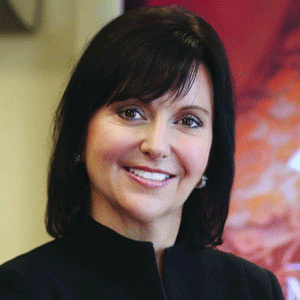THANK YOU FOR SUBSCRIBING

How Data Science Can Make Business Travel Profitable
Andrew Jordan, Chief Technology Officer, Carlson Wagonlit Travel and Eric Tyree, Chief Data Scientist, Carlson Wagonlit Travel


Andrew Jordan, Chief Technology Officer, Carlson Wagonlit Travel
Data science presents immense opportunities to transform the way businesses operate and help them gain a competitive advantage. But, not many have harnessed the power of data like Google or Amazon. The business travel sector is an interesting case in point. There’s a lot of data in corporate travel, and this can make it hard to use effectively.
It’s easy to be obsessed with data. But it isn’t about the data itself. It’s about how companies use that information to improve their travel programs to benefit both the company and the traveler.
Data changes how business travel is viewed, experienced and managed. It helps companies understand the impact travel has on their business, and the value it generates.
Measuring the ROI on business travel
Many companies spend hundreds of millions of dollars on business travel every year, with hardly any way to measure return on investment (ROI). Any other department in a company would need to prove ROI for this sort of money, and travel should be no different.
The trouble is that travel data is still viewed in a vacuum. The focus on costs means people look at travel budgets as just the cost of a plane ticket, hotel and taxi.
Which isn’t to disparage cost control – travel and procurement managers are typically very good at managing costs. But you can’t look at the ROI on travel through such a narrow lens. Companies need to start combining traditional travel data (hotel, air and other expenses) with HR, corporate finance and non-traditional data sources.
Business travel should be viewed in the context of operations, revenue streams and human impact – not just cost. And organizations need to understand how business travel helps their corporate strategy.
The first question has to be: why is this person traveling? There are good reasons: to gain or impart knowledge, to close deals, to work on collaborative projects. Everything else can be handled by email, phone, or video conferencing. So is the trip worth it?
By combining travel data with other types of data, you can begin to understand the true cost of a business trip versus the value it generates.
For example, overlaying travel data with corporate finance data can help you explore the correlation between travel and revenue growth. And you can see if certain types of trips have a greater contribution to revenue than others. Travel managers and CFOs can then understand what impact cutting the travel budget for a particular department would have on the business.
 Eric Tyree, Chief Data Scientist, Carlson Wagonlit Travel
Eric Tyree, Chief Data Scientist, Carlson Wagonlit TravelYou can also start looking into travelers’ productivity. For example, an average business trip is seven hours of traveling with transit. That’s a lot of time. With HR data, this can be converted into salary, which gives you a fairly accurate cost per hour of travel.
When seen in this light, the time spent sitting in the airplane can actually cost more than the price of the ticket. If by flying business class you can work for the entire flight, the chances are you’ll get back the cost of the ticket in billable hours.
How business travel impacts productivity and well-being
Taking a holistic view of data can benefit a business in other ways, too.
For a start, it brings a whole new way of addressing employee well-being.
Anecdotally, there is a relationship between illness and travel. If you talk to people, they’ll agree that the more you travel the more likely you are to get sick. When you look at the data – in particular sickness and absence information from HR systems –there’s a weak, minor correlation between travel and illness. As you travel more, you’re slightly more likely to get sick – that is, until you become a very heavy traveler.
Decision-makers can start looking at business travel as a revenue generator – and get more bang for their buck
If you look at people who travel all the time for their jobs like project managers, sales people and engineers, this correlation between illness and travel absolutely explodes. Not only are people getting sicker far more often, they are much more likely to get catastrophically ill. In other words, being taken out for weeks if not months at a time. What we think is happening is that if someone travels for a living and they get a cold, they have to soldier their way through it. And this works until one day that heavy cold turns into pneumonia, and pretty soon they’re off work for six to eight weeks.
A traveler who has to take more than three weeks off work due to illness can be very expensive for their company when you look at their time cost, productivity loss and insurance premiums. In hard dollar terms this can actually work out to a six figure sum.
With data like this, companies can create travel policies that factor in talent management, health and wellbeing. You’re no longer just looking at getting people from A to B or just looking at expense. You’re able to look at the human side of travel and be able to measure it in ways that are very persuasive to your decision makers in the business.
What’s holding us back?
All this seems obvious – and it’s technically feasible. The barrier is cultural. It involves travel managers engaging with divisions across the company to build a complete picture.
It means travel data has to be read differently and opened up to other parties such as HR, sales and financial departments – and CTOs and CIOs play an important role in enabling this. It’s about bringing together separate interests and creating new KPIs to measure the effectiveness of travel programs.
Once this happens, business travel becomes a strategic topic – and HR directors, CFOs and CEOs join the conversation.
Most importantly, instead of an expense, decision-makers can start looking at business travel as a revenue generator – and get more bang for their buck.
Weekly Brief
I agree We use cookies on this website to enhance your user experience. By clicking any link on this page you are giving your consent for us to set cookies. More info
Read Also













